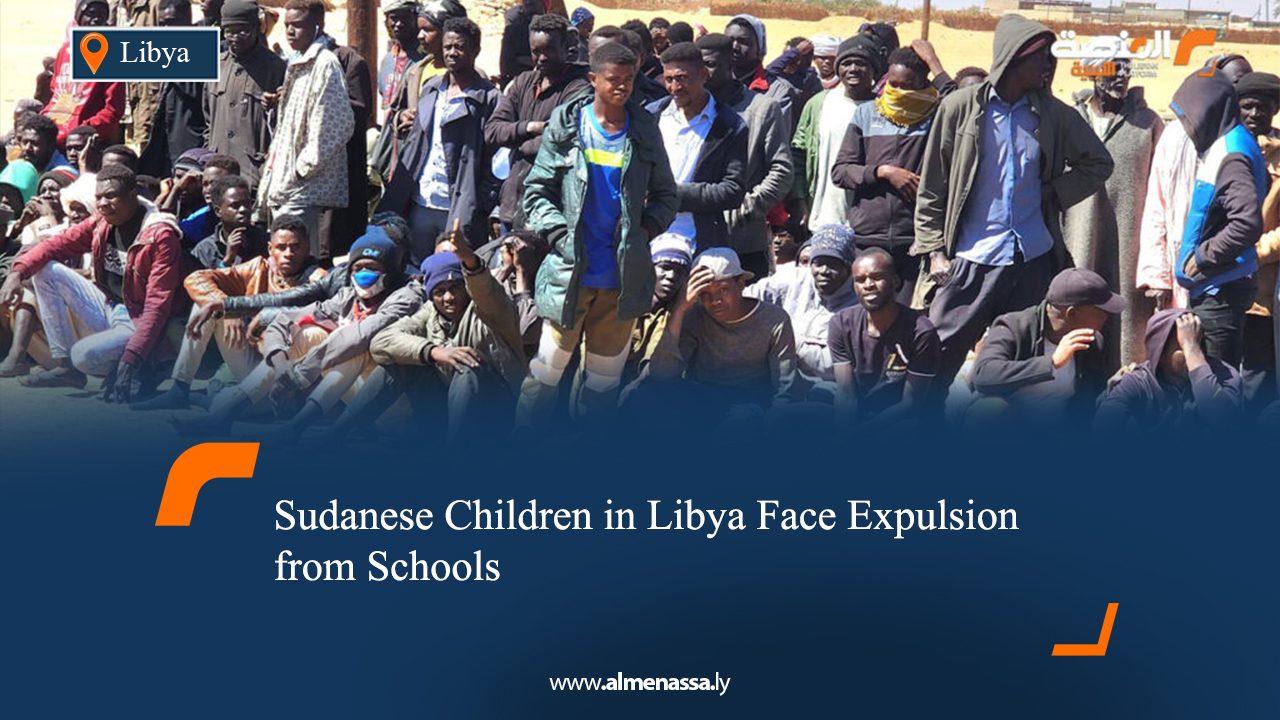As the new academic year begins in Libya, thousands of Sudanese refugee children are at risk of losing access to formal education following a government decision requiring all foreign students—including Sudanese—to hold valid residency permits to enroll in public and private schools.
The Ministry of Education issued a directive last week, mandating that schools refuse admission to any non-Libyan student without a valid legal residency for at least one year. Parents must also submit a written pledge to complete residency procedures within three months, with the warning that failure to comply will result in students being barred from attending classes.
This decision has sparked widespread concern among Sudanese refugee families, many of whom are struggling with difficult living conditions and cannot afford the high costs of legal documentation.
Financial Burden on Families
In Tripoli, several Sudanese parents expressed frustration over the new requirements. Refugee Ahmed Taha explained that an adult passport costs 1,260 Libyan dinars—around 535,000 Sudanese pounds—while a child’s passport costs 600 dinars, or 260,000 pounds. Residency fees exceed 2,500 dinars, not including taxes and accumulated fines, making the process unaffordable for most displaced families.
A Growing Education Crisis
A Sudanese teacher working in Libya reported that over 3,000 Sudanese students are currently enrolled in schools across Tripoli, Misrata, Sabha, Ajdabiya, Benghazi, and Kufra. He noted that the Ministry had allowed Sudanese students to be treated like Libyans last year, but reversed that policy this year under public pressure—creating a serious barrier to school access.
He added that the number of Sudanese schools in Libya is insufficient to meet demand, with only five in Tripoli, two in Misrata, and one each in Sabha, Ajdabiya, Benghazi, and Kufra. This shortage of dedicated institutions compounds the challenges facing refugee families and puts the future of thousands of children at risk.
Families Caught in Limbo
Umayma Hafez, a mother of three, said she was forced to sign a legal pledge with a lawyer to begin residency procedures so her children could continue their education. She added that her family is now seriously considering returning to Sudan if the issue remains unresolved—despite the dangers posed by the ongoing conflict there.
According to UNHCR data, Libya hosted more than 313,000 Sudanese refugees as of last March, most of whom fled the war that erupted in Sudan in April 2023. They are concentrated in cities across western, southern, and eastern Libya, including Tripoli, Misrata, Sabha, Kufra, Ajdabiya, and Benghazi


